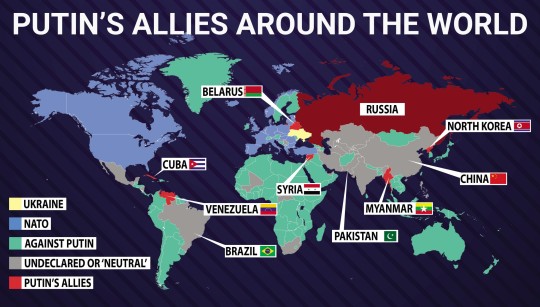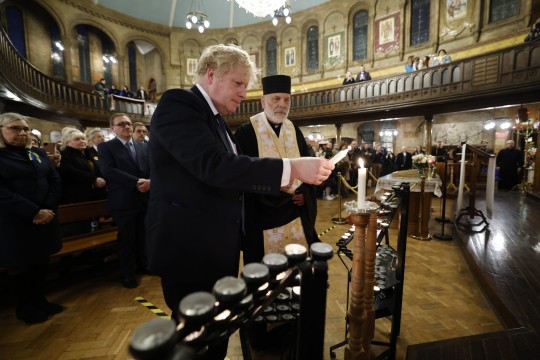Russian President Vladimir Putin is facing international isolation after launching his brutal attack on Ukraine, costing the lives of thousands of civilians and soldiers.
But what about his allies? Who's left? 👇 trib.al/C4EJEib
But what about his allies? Who's left? 👇 trib.al/C4EJEib
NATO members and the European Union have been providing weapons, military hardware and humanitarian relief to Ukraine, while sanctioning Russia – but a handful of countries have backed Putin. 

Yesterday, the United Nations General Assembly voted to condemn the attack with an unprecedented majority of 141 out of 193 member states, with five countries voting against. 

The resolution demands that Russia ‘immediately, completely and unconditionally withdraw all of its military forces from the territory of Ukraine within its internationally recognized borders.’ 

Some world leaders, however, refused even though the UK and 37 allied nations ‘referred atrocities in Ukraine’ to the International Criminal Court, and Boris Johnson accused the Russian president of war crimes. 

The five that voted against were Belarus, North Korea, Eritrea, Russia and Syria, while 35 abstained.
Some, like Belarus, have gone even further and pledged support for Mr Putin’s war, claiming it is the West who provoked him.
Some, like Belarus, have gone even further and pledged support for Mr Putin’s war, claiming it is the West who provoked him.

Belarusian leader Alexander Lukashenko, whose government has become reliant on Russia for economic, political and military support, has even hosted Russian forces and allowed them to use the country as a staging ground for the invasion. 

But despite this and historical strong links with a number of European states, Putin has lost countless allies over the last week.
Czech president Milos Zeman and Hungary’s prime minister Viktor Orban – both known as pro-Russian voices in the European Union – have openly condemned his ‘unprovoked act of aggression'.
Calling for harsh sanctions last week, the Czech leader insisted Russia has committed ‘a crime against peace’.
Read the full story here 👇 trib.al/C4EJEib
Read the full story here 👇 trib.al/C4EJEib
• • •
Missing some Tweet in this thread? You can try to
force a refresh










